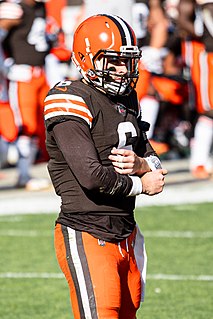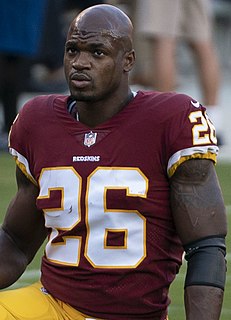A Quote by Baker Mayfield
People will have their guesses and opinions on my character, but anyone that's actually sat down and talked to me knows that I don't have any character issues, any off-the-field issues.
Related Quotes
I once made the mistake of writing a story with David Corbett. The man smoked me. He can delineate the character and personality of an accordion in three strokes. I didn't even know accordions had character. This act of generosity and wisdom from a very good writer will help anyone who is staring at a blank page, any day, any time. Highly recommended.
People of good character are not all going to come down on the same side of difficult political and social issues. Good people - people of character and moral literacy - can be conservative, and good people can be liberal. We must not permit our disputes over thorny political questions to obscure the obligation we have to offer instruction to all our young people in the area in which we have, as a society, reached a consensus: namely, on the importance of good character, and some of its pervasive particulars.
I greatly appreciate that people would like to see me have one more match or comeback or, 'Daniel Bryan got cleared, so why can't you?' I will never be cleared. Mine is a completely different injury. He had neck issues, but it wasn't his neck issues that retired him, actually. It was the concussion issues.
Any piece of furniture, I don't care how beautiful it is, has got to be lived with, and kicked about, and rubbed down, and mistreated by servants, and repolished, and knocked around and dusted and sat on or slept in or eaten off of before it develops its real character ... A good deal like human beings.
A detective novel should contain no long descriptive passages, no literary dallying with side-issues, no subtly worked-out character analyses, no 'atmospheric' preoccupations. Such matters have no vital place in a record of crime and deduction. They hold up the action and introduce issues irrelevant to the main purpose, which is to state a problem, analyze it, and bring it to a successful conclusion. To be sure, there must be a sufficient descriptiveness and character delineation to give the novel verisimilitude.






































